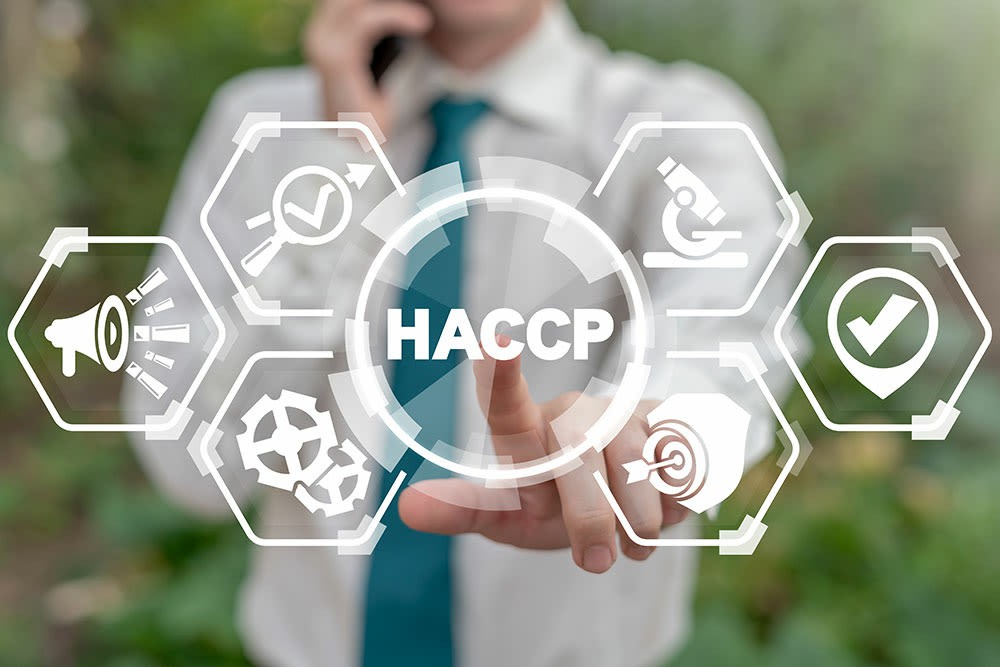The Essential Guide to HACCP Training: Ensuring Food Safety Compliance in Dublin, Cork, Galway, and Beyond
Food safety is paramount for any food-related business, from restaurants in Dublin to manufacturers in Galway. The Hazard Analysis and Critical Control Point (HACCP) training is not just a regulatory requirement; it is a commitment to providing safe food to consumers and ensuring your business's reputation remains unblemished. In this blog post, we will delve into why HACCP training is essential for food safety compliance across Ireland, focusing on the cities of Dublin, Cork, Galway, Limerick, Waterford, and Belfast.
What is HACCP?
HACCP stands for Hazard Analysis and Critical Control Point. It is a management system designed to identify and mitigate potential food safety hazards. By applying the principles of HACCP, businesses can proactively prevent contamination risks, ensuring that food is safe from its production to the consumer's plate.
The Importance of HACCP Training for Food Safety Compliance in Ireland
In Ireland, the food industry is highly regulated to protect public health. HACCP training equips food safety officers, restaurant owners, and catering professionals with the knowledge and skills necessary to comply with these regulations. Whether you operate in Dublin or Belfast, understanding HACCP principles is vital for:
- Regulatory Compliance: HACCP provides a framework that aligns with Irish and EU food safety laws, ensuring your business meets legal obligations.
- Preventing Foodborne Illness: By identifying and managing hazards, HACCP training helps reduce the risk of foodborne illnesses, safeguarding both customers and your business reputation.
- Enhancing Hygiene Standards: Implementing HACCP principles increases operational hygiene, contributing to a cleaner, safer food environment.
Understanding HACCP Principles
HACCP consists of seven key principles:
- Conduct a hazard analysis: Identify potential food safety hazards associated with your operations.
- Determine critical control points (CCPs): Identify points in your process where hazards can be controlled.
- Establish critical limits: Set minimum and maximum limits for each CCP to ensure food safety.
- Establish monitoring procedures: Develop ways to monitor control measures and ensure compliance with critical limits.
- Establish corrective actions: Create a plan for corrective action if monitoring indicates that a critical limit has not been met.
- Establish verification procedures: Confirm that your HACCP system is functioning effectively through periodic checks.
- Establish record-keeping procedures: Maintain documentation to provide evidence of compliance and monitoring.
Getting HACCP Certified: A Step-by-Step Guide
Achieving HACCP compliance involves several structured steps:
- Enrollment: Choose a reputable HACCP training course, either online or in-person, that fits your business needs.
- Training: Complete training focused on HACCP principles, risk assessment, and compliance requirements.
- Implementation: Apply the knowledge from the training to develop a HACCP plan tailored for your business.
- Certification: Schedule an audit with an accredited body to assess your HACCP plan and grant certification upon successful completion.
- Ongoing Maintenance: Regularly review and update your HACCP plan and participate in refresher training to ensure continued compliance.
Online vs. In-Person HACCP Training: Which is Right for Your Business?
When it comes to HACCP training, businesses have the option of taking courses online or in person. Here's a quick comparison:
- Online HACCP Training: Flexible and convenient, allowing participants to learn at their own pace. Ideal for busy professionals looking to fit training into their schedules.
- In-Person HACCP Training: Offers direct interaction with instructors and networking opportunities with industry peers. Recommended for those who prefer hands-on learning experiences.
Common HACCP Violations and How to Avoid Them
Understanding common pitfalls can help your business maintain compliance:
- Failing to perform regular hazard analysis updates.
- Not documenting monitoring procedures effectively.
- Neglecting to provide adequate training for all staff involved in food handling.
To avoid these issues, ensure staff are regularly trained, procedures are documented, and regular audits are conducted to keep the HACCP plan up to date.
Enhancing Business Reputation and Trust through HACCP Compliance
Achieving HACCP certification adds value to your business. It demonstrates a commitment to food safety, which can enhance your reputation and foster customer trust. Consumers are more likely to choose businesses that prioritize their health and well-being.
Conclusion & Call to Action
In the competitive food industry landscape of Ireland, having HACCP certification is no longer optional but a necessity. Equip your business with the training needed to ensure compliance, safety, and the trust of your customers. Enroll in our HACCP Training Course today and take the first step toward excellence in food safety!



 349,500 Offered Certificates
349,500 Offered Certificates
 24/7 Online Training
24/7 Online Training
 Money Back Guarantee
Money Back Guarantee
 Fully Accredited Courses
Fully Accredited Courses
